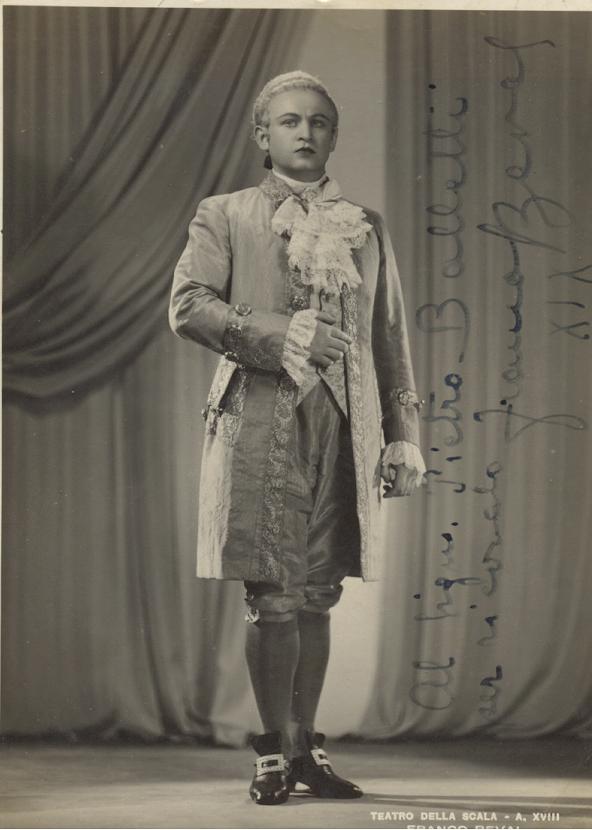Franco Beval
There are more than just a few uncertainties about Franco Beval's life and career. He was born Tadeusz Franciszek
Bawół, most probably in 1904, either in Sosnowiec, or in Siemianowice Śląskie, or (most likely) in
Wójtowa Wieś. In any case, he grew up in Siemianowice Śląskie, worked as a type setter for the railway in
Katowice, and sang in a choir in Siemianowice. After World War I, he took part in the armed fight for Polish unity and independance.
Eventually, he had his voice trained in Katowice. As for his debut, neither place nor date nor role are known, just that it was in
Walzertraum. In any case, that debut instigated some dignitaries of the Katowice music to arrange further studies in Warsaw for
Bawół – with the famous retired soprano Janina Korolewicz-Waydowa. Korolewicz-Waydowa taught him, fed him, found
him a flat in Warsaw, and found him his stage name Franco Beval.
On February 3rd, 1935 he made his operatic debut in Warsaw, as Jontek, immediately followed by Canio. He had big success, and soon
added Radamès, Manrico, Kirkor (in Goplana by Władisław Żeleński) and Erik to his repertory.
In 1937, he got a purse for even further studies in Milano, with Edoardo Garbin.
He would never return to Poland. His Italian debut seems to have taken place at the Petruzzelli in Bari, he sang in Venice (La Fenice),
Trieste and Parma, and repeatedly at La Scala, where he made his debut on 9 January 1940 as Andrea Chénier, and was Turiddu in
April 1940, Apollo (in Daphne) in April 1942, Chénier again in February 1943 and January 1946, and Puccini's des Grieux
in November 1944. At the Teatro dell'Opera in Rome, he sang Arnold, Ernani, Don Carlo, Radamès and Vassili (Siberia) in 1940
and 1941.
The rest of his career is quite ill-documented. He is said to have sung Radamès to Ljuba Welitsch's Aida at Covent Garden in September
1948, although other sources say he didn't; and he is said to have spent the rest of his career "in Switzerland, Spain, France and the
USA", which is as unspecific as possible; and he made a tour to South America, where Ladis
Kiepura called for a boycott of his appearances, saying that Beval had "sided with the Germans" in World War II, to Beval's
staunch dementi.
Reference 1; reference 2: Kutsch & Riemens
|
